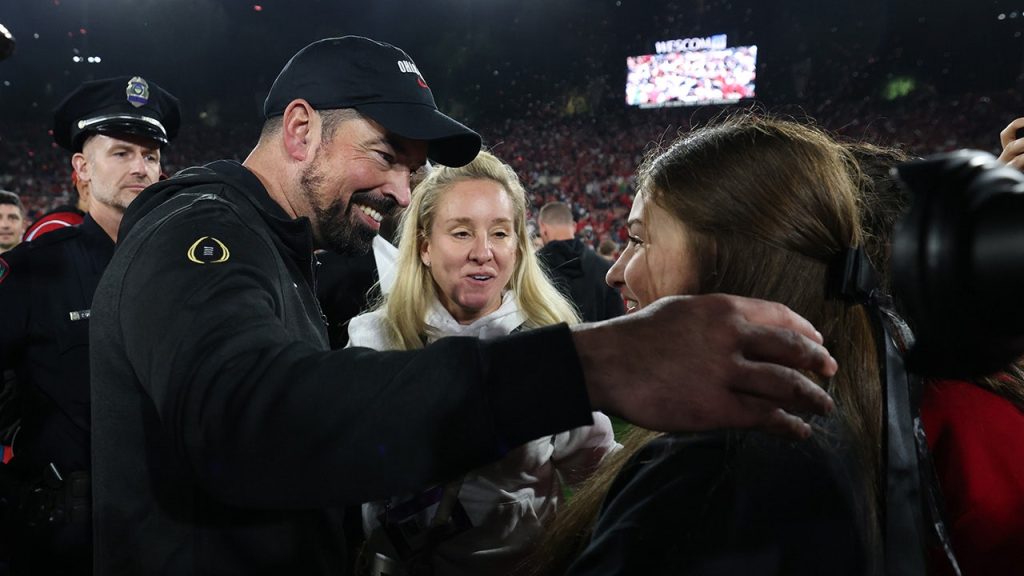The aftermath of Ohio State’s loss to Michigan in 2022 plunged Ryan Day and his family into a terrifying ordeal that extended far beyond the football field. The intense scrutiny and criticism that followed the game escalated into a barrage of hateful messages and threats, transforming what should have been a period of reflection and preparation for the playoffs into a fight for their safety and well-being. The negativity directed at Day transcended typical fan disappointment, quickly spiraling into a disturbing and dangerous obsession for some individuals.
Nina Day, Ryan’s wife, described the weeks following the Michigan game as the “lowest and darkest” imaginable. The outpouring of hate was unprecedented, reaching a fever pitch that forced her to disconnect her phone. The threats weren’t limited to verbal attacks; they targeted the most vulnerable aspects of Day’s life, invoking the tragic suicide of his father when he was just a child. Some individuals, emboldened by anonymity, went so far as to urge Day to follow the same path, a chilling testament to the depths of their cruelty and the complete disregard for human decency.
The situation deteriorated further when the harassment extended beyond Ryan to their teenage son, RJ, who also received death threats on social media. The family’s address was leaked online, shattering their sense of security and privacy. This forced the Days to take drastic measures, hiring armed security guards to protect their home and family. The fear and anxiety became so overwhelming that Nina even contemplated leaving Columbus with her children, seeking refuge from the relentless harassment and the potential for escalating violence. The emotional toll on the entire family was immense, leaving Ryan feeling responsible for exposing them to such a hostile environment.
While Ryan Day maintained a public facade of composure, continuing with his coaching duties and press conferences, the internal turmoil was immense. He wrestled with the weight of the situation, grappling with the knowledge that his career choice had placed his family in harm’s way. The pressure to win, already immense given the program’s expectations, intensified further as he strived to restore a sense of peace and normalcy to their lives. He viewed success on the field not just as a professional goal, but as a means to protect his family from further torment.
The narrative of the Day family during this period transcends the realm of sports. It highlights the darker side of fandom, where the lines between passion and obsession blur, and the anonymity of the internet emboldens individuals to engage in reprehensible behavior. The Days’ experience serves as a stark reminder that coaches and their families are not immune to the real-world consequences of online vitriol and the dangers of unchecked fanaticism. While the vast majority of fans express their disappointment within acceptable boundaries, the actions of a malicious minority can have devastating impacts, as evidenced by the fear and anxiety experienced by the Day family.
The story ultimately concludes with a sense of resilience and triumph. Ryan Day, driven by a fierce determination to shield his family from further harm, led Ohio State through the playoffs, culminating in a hard-fought victory. This win, more than just a sporting achievement, represented a restoration of peace and security for his family. It was a testament to his unwavering commitment to his loved ones and his ability to navigate the treacherous waters of intense public scrutiny. While the experience undoubtedly left scars, it also highlighted the strength and resilience of the Day family, their ability to find solace and healing in the face of adversity, and the unwavering support they provided each other throughout the ordeal.










